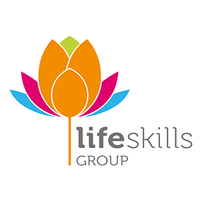The title of this blog is lifted directly from one of the most useful books I have ever read. If you haven’t read it, I suggest you check it out (David Epstein | The Books: Range & The Sports Gene ). For those who haven’t had the pleasure of engaging with it, the book focuses on exploring the questions:
Should you choose a specific field and start training as early as possible to get a head start? Or is it better to explore and develop broad-based skills and experiences before you specialise?
As a parent, I see the hyperspecialised pathways many parents are putting their children on and am often torn about how best to support my children. I see children as young as 3 and 4 at the skate park, golf course, swimming pool, athletics track, and soccer field engaged in intense training regimes.
As an educator, I know the importance of early intervention and I see the gains students who are reading from a young age make. I see the direct translation of intensive tutoring on academic achievement.
In the short term I see these children as prodigies smashing records and pushing the limits of capacity, enjoying the fruits of their hard work and having great success. This sits well with my sense of do the work, get the results mentality.
So, when it comes to my own kids it should be obvious what the pathway to success is; start early, train hard, enjoy success. As articulated in Range, Tiger Woods’ father had him training to at the age of 2, was single mindedly specialised on golf and is now considered one of, if not, the greatest golfer of all time.
The Tiger story is one that is easy to relate to, but it turns out that specialising early and moving systematically from point A to point B doesn’t translate well into most aspects of the world we live in. Epstein argues against narrow early specialisation and makes a compelling case for accumulating a ‘range’ of experiences and skills (known as sampling) before finding the areas of strength and passion that are the best fit to specialise in.

![]() Book Summary - Range (David Epstein)
Book Summary - Range (David Epstein)
In the real world, we are seeing an increase in people changing professions, we are seeing child athletes burn out and retire before they hit the heights of elite sport, we are seeing higher rates of anxiety and depression in adolescents and people who are uncertain about their future. Most concerningly, we are seeing young people develop a sense of identity through their hyperspecialisation ‘Johnny the swimmer’, ‘Lisa the mathematics prodigy’ and ‘Esther the musician’ and when that pathway doesn’t eventuate the way they had visualised - being just Johnny, Lisa and Esther is not enough, leading to devaluing self-worth, lack of confidence and anxiety.
While I am firmly in the Range camp and advocate fostering an extensive sampling period, I can see how people gravitate to hyperspecialisation. Regardless of which developmental trajectory young people are on, one thing is certain, we need to support them to normalise their emotions and feelings in a way that allows them to navigate their future without being bound by the identity imposed on them by their past. It is never too late to begin sampling and specialisation is a great way to develop deeper expertise but undoubtedly we need to keep a place for managing emotions, expectations, self-worth and a sense of identity and belonging as our young people grow and learn.
[ Rydr Tracy is the Head of Education at Life Skills Group and former Director Strategic Priorities at CESE. He is a specialist in evidence-informed practice in educational innovation, with a career focus on strategic change that improves student outcomes. He draws on a rare blend of successful experience in schools, system leadership roles and industry practice – experience that has given him deep understanding of the complexities of the education sector from the classroom to the boardroom and a demonstrated capacity to generate practical recommendations that are grounded in context and evidence. ]
.png?width=500&height=374&name=Logo_transparent%20(2).png)





